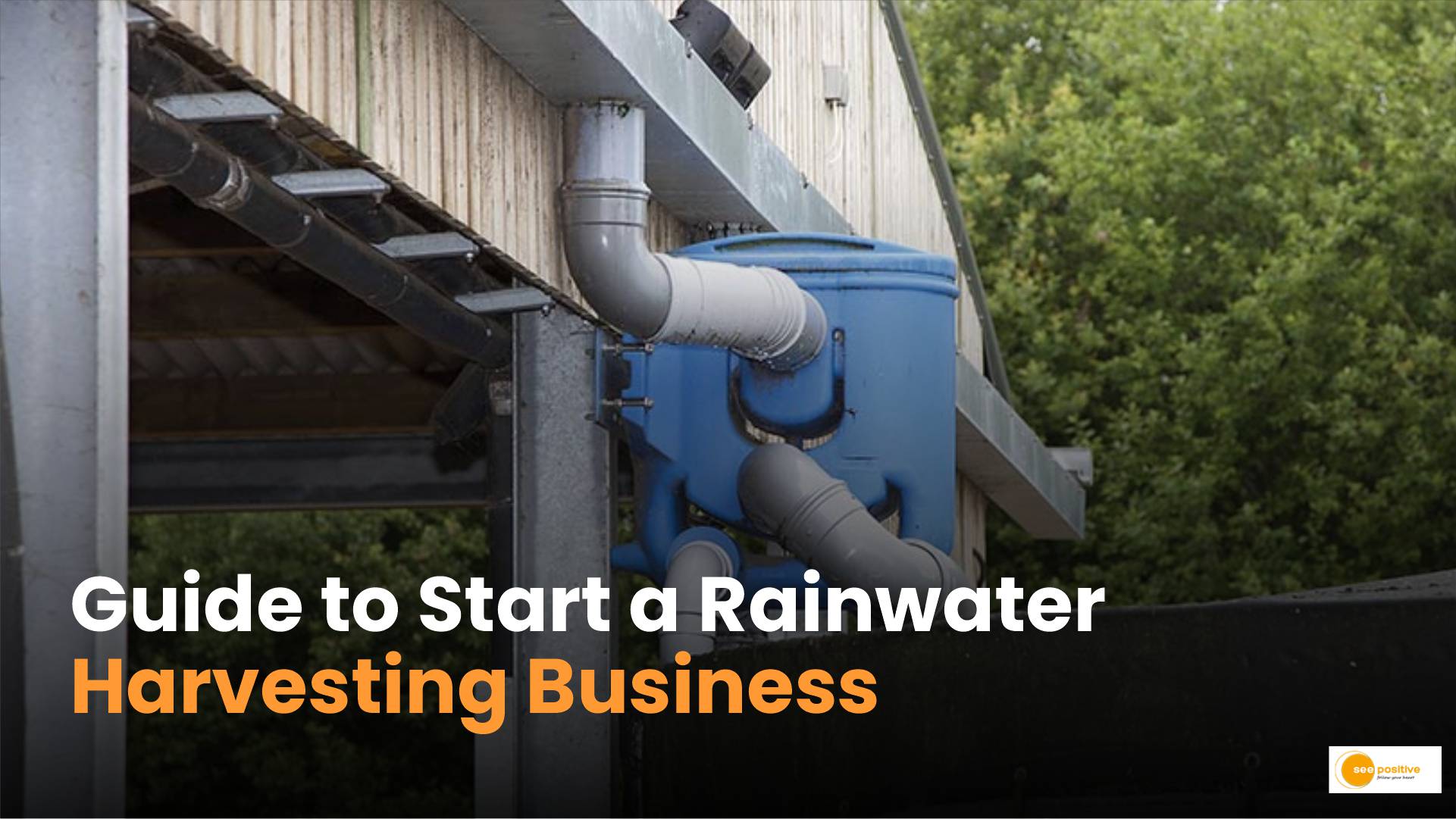Rainwater is often considered a blessing, but few realize its full potential. Harnessing rainwater not only conserves this precious resource but can also be turned into a profitable business. One inspiring story is that of Rahul Kacha from Surat, Gujarat, who has successfully turned rainwater harvesting into a thriving business. Let’s explore how you can start a rainwater harvesting business and look at Rahul’s journey for real-life inspiration.
Understanding Rainwater Harvesting
Rainwater harvesting involves collecting and storing rainwater for future use. This method helps conserve water, reduce reliance on groundwater, and prevent flooding and soil erosion. The collected water can be used for various purposes such as irrigation, drinking, and industrial use.
Steps to Start a Rainwater Harvesting Business
1. Research and Planning
Market Research: Understand the demand for rainwater harvesting systems in your area. Identify potential customers such as households, businesses, and agricultural sectors.
Business Plan: Develop a detailed business plan outlining your goals, target market, marketing strategy, and financial projections.
2. Legal Requirements and Certifications
Permits and Licenses: Check the local regulations regarding rainwater harvesting. Obtain necessary permits and licenses to operate your business legally.
Certifications: Ensure your system complies with safety and quality standards. Certifications can build trust and credibility with your customers.
3. Setting Up the Infrastructure
Storage Tanks: Invest in high-quality storage tanks. The size of the tank will depend on your capacity to collect and store rainwater.
Filtration System: Implement an effective filtration system to ensure the collected rainwater is safe for use. This is crucial, especially if you plan to sell bottled rainwater for drinking.
Pumping System: A reliable pumping system will help distribute the stored rainwater efficiently.
4. Marketing and Awareness
Educational Campaigns: Educate potential customers about the benefits of rainwater harvesting. Conduct workshops, seminars, and webinars.
Online Presence: Utilize social media and a professional website to reach a broader audience. Share success stories, benefits, and testimonials.
Partnerships: Collaborate with local governments, NGOs, and environmental organizations to promote rainwater harvesting.
5. Offering Services
Installation Services: Provide installation services for rainwater harvesting systems. This can include designing, setting up, and maintaining the systems.
Water Bottling: If the water is filtered and safe for drinking, consider bottling and selling it.
Consulting: Offer consulting services to individuals and businesses interested in setting up their own rainwater harvesting systems.
Real-Life Example: Rahul Kacha’s Rainwater Harvesting Business
You’ve often heard that rainwater is precious, but Rahul Kacha from Surat, Gujarat, has proven it. Rahul not only conserves rainwater but also earns from it. In 2021, he came up with the idea to store, filter, and bottle rainwater, and today, he supplies it to 150 households.
Rahul knew the importance of rainwater from his studies. Initially, he set up a system to collect rainwater for his own use. He realized that many people might want to drink rainwater but lacked the means to collect and store it.
Starting the business was challenging due to financial constraints. Rahul couldn’t afford the high costs of building large storage tanks. He sought investors who believed in his idea. Today, Rahul has a 200,000-liter storage tank and another with a 100,000-liter capacity, both costing around ₹35 lakh.
Rahul has always been aware of the benefits of rainwater. To grow his business, he started spreading awareness about rainwater harvesting. He met with people, spoke at seminars, and marketed his business on social media.
Today, Rahul supplies rainwater to around 150 homes in Surat and nearby areas. He also helps others set up their own rainwater harvesting systems. You can contact Rahul on social media for any information related to rainwater harvesting.
Conclusion
Turning rainwater harvesting into a business is not only profitable but also environmentally sustainable. By following the steps outlined above, you can start your own rainwater harvesting business and contribute to water conservation. Rahul Kacha’s success story is a testament to the potential of this business model. Embrace the power of rainwater and make a positive impact on your community and the environment.


